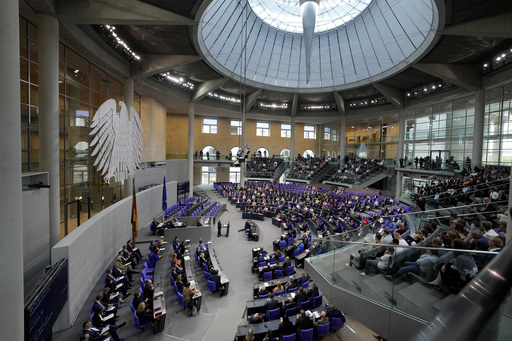BERLIN — On Sunday, citizens of Germany will cast their ballots to elect a new parliament that will shape the nation’s direction for the forthcoming four years. Germany not only holds the title of Europe’s largest economy, but it is also the most populous nation within the 27-member European Union and a pivotal NATO ally. Following Russia’s large-scale invasion of Ukraine in 2022, Germany has become the second-largest weapons supplier to Ukraine, just behind the United States. The configuration of the upcoming government will play a critical role in how Europe responds to a newly assertive U.S. administration.
As for the election day process, voting stations will be open from 8 a.m. until 6 p.m. Local voters have the option to submit ballots by mail, but those submissions must arrive before the close of polls to be considered valid. Shortly after the polls close, exit polls will be released while the counting of votes will commence immediately. An initial overview of the election results should be available shortly after voting concludes, with a complete official tally expected early the following Monday.
Four main candidates are contending for the position of Germany’s next leader: Olaf Scholz, the current Chancellor from the Social Democrats; Friedrich Merz, representing the conservative Christian Democratic Union; Robert Habeck, the Vice Chancellor from the Green Party; and Alice Weidel, a candidate from the far-right Alternative for Germany (AfD) party. Pre-election surveys indicate Merz’s party is leading with around 30% support, followed by AfD at approximately 20%. Scholz’s Social Democrats and Habeck’s Greens trail behind. While Merz is anticipated to take over as Chancellor, the potential governing coalitions remain uncertain and may hinge on how many parties secure seats in the new parliament. Among the mainstream parties, all have expressed disinterest in forming coalitions with AfD.
Voter participation is significant, with over 59.2 million eligible voters in a nation of around 84 million, all of whom will select representatives for the new Bundestag, Germany’s lower house of parliament. This 630-seat body is responsible for electing the Chancellor, akin to a prime minister in other nations. Although there are 29 parties on the ballot, experts predict that only between five and eight will garner enough votes to gain parliamentary representation, as parties need at least 5% of the vote to qualify for seats.
After the polls close, the electoral landscape indicates that no party is poised to achieve an outright majority, which is a common occurrence in Germany. With a lack of tradition for minority governments, it is anticipated that a coalition of two or more parties will emerge. The process of forming a new government lacks formal oversight and is not bound by a strict timeline. Parties engage in discussions to identify mutual interests, eventually leading to formal coalition negotiations. These talks typically culminate in a detailed coalition agreement outlining the government’s agenda, which must receive approval from party conventions and may be subjected to a vote among the entire membership of certain parties. Following these negotiations, the Bundestag will elect the new Chancellor.
This election carries substantial weight as a robust German administration is crucial in addressing challenges posed by the new U.S. administration and instability in Ukraine and other regions. Traditionally, Germany and France have been key players in driving the EU agenda, but both nations have faced their own issues of political instability recently. The current election is occurring earlier than scheduled due to the collapse of Scholz’s three-party coalition last November, triggered by disputes over economic revitalization strategies amid two years of contraction. One of the incoming government’s immediate responsibilities will be to formulate a coherent response to these pressing economic challenges. Additionally, tackling irregular migration, which has been a prominent topic during the campaign, will also be a significant test for the new administration. If victorious, Merz aims to establish a new government by mid-April, while Scholz’s existing cabinet will continue in a caretaker role until the new Chancellor is officially elected by the Bundestag.




